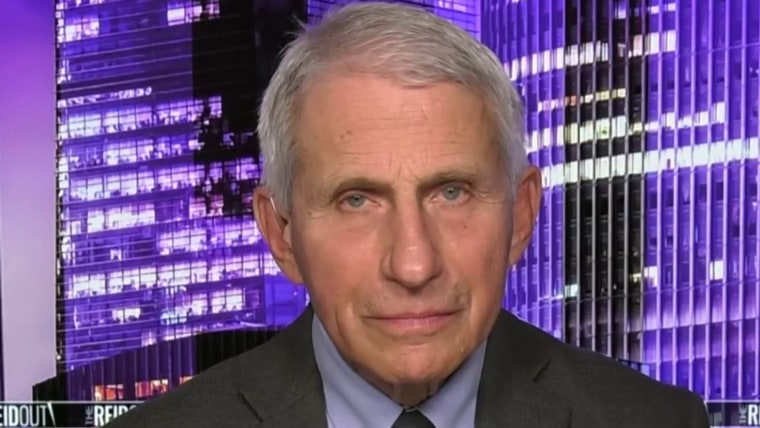The National Defense Authorization Act is generally known as the bill that funds the United States military, but as we’ve discussed, that’s not all it does. The NDAA also guides Pentagon policy, touching on everything from troop levels to weapons systems to military personnel policy.
This year, many congressional Republicans had one specific policy priority in mind for the NDAA, and as the Associated Press reported, they’re getting what they wanted.
A bill to rescind the Covid-19 vaccine mandate for members of the U.S. military and provide nearly $858 billion for national defense passed the House on Thursday as lawmakers scratch off one of the final items on their yearly to-do list. ... The House passed the bill by a vote of 350-80. It now goes to the Senate, where it is expected to pass easily, then to the president to be signed into law.
At first blush, this might not make sense. There’s a Democratic majority in the House and the Senate, and the governing party supports the status quo on Covid vaccines for servicemen and women. There’s a Democratic White House, which not only supports the current policy, it also explicitly warned lawmakers that changing it would be a mistake.
There’s also, of course, the Pentagon itself, which created the policy for American troops, which has found that the policy is successfully protecting the troops, and which encouraged Congress, publicly and privately, to leave the policy intact, explaining that it’s an important element to the larger goal of military readiness.
And yet, the NDAA is rescinding Covid vaccine requirements for service members anyway.
The problem for Democratic leaders is that they weren’t left with a whole lot of choices. They knew that they’d lose quite a few liberal votes on the House floor — indeed, 45 House Democrats opposed the NDAA yesterday — while simultaneously realizing that they’d need at least 10 GOP votes in the Senate, too. That meant a compromise was inevitable.
And when the negotiations began in earnest, Democrats found that Republicans only had one principal priority, from which they would not budge: Congress, GOP leaders said, needed to overrule military leaders and stop requiring Covid protections for the troops. Period. Full stop.
In fact, as recently as this past weekend, House Minority Leader Kevin McCarthy warned that without this one change, the NDAA simply could not pass.
Left with limited options, and unable to pass the package without Republican votes, Democrats relented.
That does not mean, however, that this change is wise or responsible. Circling back to our recent coverage, when the military adopted its current policy, it was effectively a no-brainer: President Joe Biden and Defense Secretary Lloyd Austin agreed on the importance of protecting Americans in uniform from a dangerous contagion.
When the policy was announced, Gen. Mark Milley, the chairman of the Joint Chiefs of Staff noted in a message to service members that the “health and readiness of our force is critical to America’s defense.” The Army general added, “Mandating vaccines in the military is not new.”
This remains an underappreciated detail. Those in uniform are currently required, for example, to be protected against ailments such as diphtheria and measles. The vaccines are not optional; they’re simply part of military service.
Indeed, as Rachel explained on the show last year, depending on where service members may be deployed, troops are required to receive up to 17 different vaccinations. This has been the Pentagon’s policy for quite a while, and it’s never been especially controversial. It didn’t seem to occur to congressional Republicans to complain about it or contradict military leaders — until, that is, the Covid-19 pandemic.
Republican Sen. Marsha Blackburn of Tennessee argued late last week, “No service member should have to choose between serving our country and a shot.” But the troops have already made that choice: All kinds of vaccinations are already required. Those who don’t want the health protections are not allowed to serve. It’s not about punishing vaccine opponents; it’s about military readiness and protecting the troops.
It wasn’t until the GOP decided to make Covid a culture war crusade that this threatened any modern NDAA.
I spent some time reviewing the text of the final bill, and it appears that Americans who serve will still be required to have a series of vaccinations — except one, which will be optional at Republicans' insistence.

